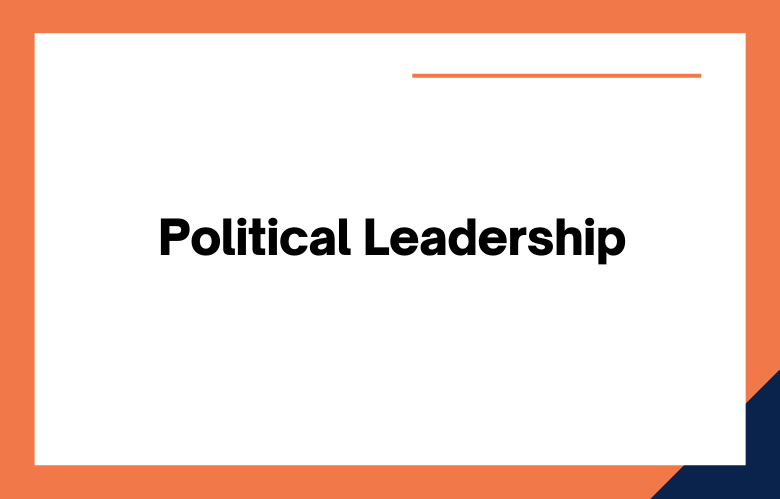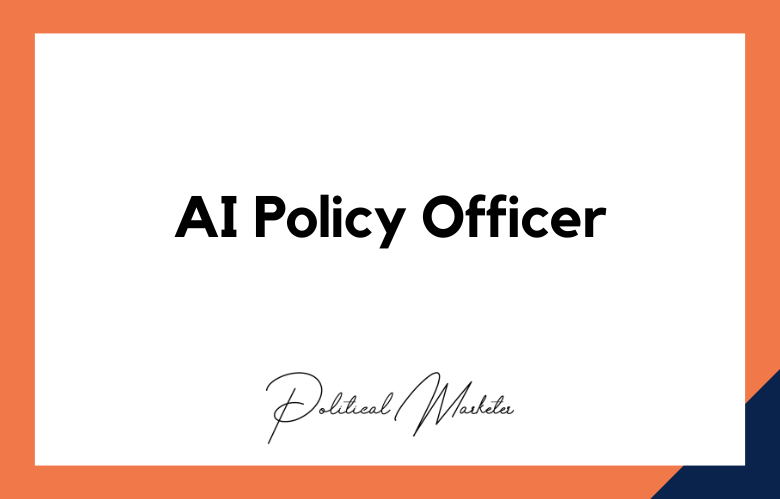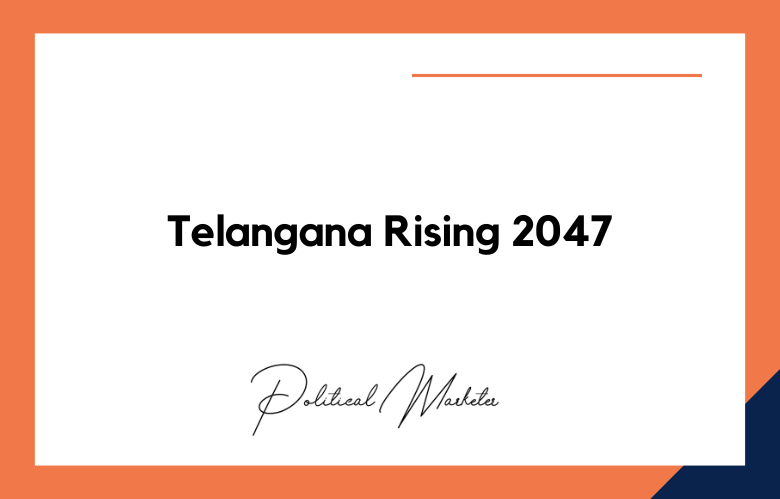The two-party system in the United States is an exciting way to look at the qualities of good political leadership. What defines good political leadership? This post will explore what makes up influential leaders in both parties.
What defines good leadership? There are several points on the topic. Some argue that it is about being able to have a vision and implement that vision effectively.
In contrast, others believe it is about having the strength to stand out for what you believe in. These two aspects of leadership can sometimes contradict each other, but when they work together, they create an unstoppable force seen in some of history’s most influential leaders.
Detailed Concepts of Political Leadership
Political leadership is the act of leading a political organization, whether it be local or global. The leader should have complex concepts and strategies to lead his people toward success.
Political leaders should focus on building a solid foundation, and embracing new technologies and opportunities is essential.
Leadership is the activity of guiding, directing, or motivating people to help them achieve specific goals.
If you wish to be a leader, it’s essential to understand the intricacies of politics. Otherwise, you won’t have the necessary understanding of how things work in your country.
Personal Characteristics of Political Leaders
- Great leaders are willing to take risks
- They have a strong sense of justice
- They are self-aware and know their strengths and weaknesses
- They set an example for others to follow with integrity, honesty, and compassion in all they do
- Franklin Roosevelt was a strong leader who had experience leading the country
- Hitler was an authoritarian dictator who wanted to control all aspects of society
- Gandhi believed in non-violent protest and led India to independence from British rule
- A leader’s character is revealed through their actions
- Leaders are constantly under pressure to make decisions that will affect the lives of many people
- The way a leader interacts with other people can show what kind of person they are, including how they treat subordinates, opponents, and friends
- A good leader is confident in their beliefs and willing to take risks
- A good leader knows how to delegate tasks and responsibilities
- A good leader has a vision for the future that they are passionate about
- A good leader listens to opposing viewpoints before making decisions
- Good leaders can unite people with different backgrounds when faced with adversity
What are the Characteristics of a Good Leader?
A good leader can motivate their followers to complete a task they would not do independently.
Great leaders are honest, ethical, and competent. Their subordinates and peers also respect them.
A good leader is intelligent, ambitious, and creative. They’re also social, so they can easily communicate with their followers.
A good leader is honest, polite, and professional.
A Quick Guide to Working on Modern Political Campaigns
When working on a modern political campaign, many things can be done. This article will review some of them and advise you on doing your best work.
The following is a guide to what you need to do to work on modern political campaigns.
An essential part of political campaigns is to decide which issues are most relevant to voters. This might not seem easy, especially if the candidate has little political experience or previous office-holding.
The most significant thing to remember about working on a campaign is being passionate about the candidate’s position. If you’re not, the work will seem like an uphill battle.
There are several factors to consider when running a modern political campaign. The most important one is having an effective team of campaigners that can get the job done right.
Working on modern political campaigns is both challenging and rewarding. It involves hours of grunt work for little money, but you can learn much about the world and how it works.
What Defines Good Political Leadership?
The quality of a confident leader is not defined by gender, age, or education. It’s defined by whether they can uplift the people and country that depend on them.
Today we’re going to be talking about what defines good political leadership.
Political leaders must have a broad world perspective, including understanding their people.
Good political leadership is a combination of morals and competence.
The actions of great leaders often define good leadership. For example, Nelson Mandela was a leader who fought for equal rights and overcame many obstacles.
Conclusion
What defines good political leadership? Your opinion may be different than mine. When I think of a leader, I want them to have integrity and empathy for those they lead, as well as an understanding that listening is just as essential as speaking up.
There’s also the matter of intellect- do you want someone who can make quick decisions or slow down and plan? The list goes on, and what should define good leadership in your mind is how it aligns with yours.
If we see eye-to-eye on these qualities, we could work together to shape the future through better policymaking and more open conversation. Reach us today to find out more about our Political Leadership Consulting services!
Political Leadership: What Defines Good Political Leadership? – FAQs
What Is Political Leadership?
Political leadership refers to the ability of individuals or groups to guide, influence, and govern people through political processes and decision-making.
Why Is Political Leadership Important In A Democracy?
It ensures vision, accountability, public trust, and effective policy implementation within democratic frameworks.
What Are The Core Qualities Of Effective Political Leaders?
Integrity, vision, empathy, decisiveness, communication skills, and adaptability are essential qualities.
How Does Political Leadership Differ From Bureaucratic Leadership?
Political leadership is elected and vision-driven, while bureaucratic leadership is administrative and procedural.
Can Political Leadership Be Learned Or Is It Innate?
While some traits may be innate, leadership can be developed through experience, training, mentorship, and public engagement.
How Do Political Leaders Influence Public Opinion?
Through speeches, policies, media presence, social media, and symbolic actions that shape public narratives.
What Is The Role Of Political Leaders During A Crisis?
They provide direction, build public confidence, manage resources, and maintain national or regional stability.
Why Do Some Political Leaders Fail Despite Popular Support?
Failure may stem from poor execution, lack of vision, corruption, miscommunication, or institutional resistance.
What Role Does Communication Play In Political Leadership?
It is critical for mobilizing support, conveying policies, resolving conflicts, and inspiring citizens.
Can Political Leadership Exist Without Formal Authority?
Yes, informal leaders such as activists or movement leaders can influence politics significantly without holding office.
How Do Political Leaders Balance Popularity And Policy Decisions?
Skilled leaders balance long-term policy goals with short-term public sentiment through strategic communication and transparency.
What Are The Ethical Challenges In Political Leadership?
These include managing conflicts of interest, ensuring accountability, resisting corruption, and maintaining public trust.
How Does Leadership Style Affect Political Outcomes?
Authoritarian, populist, or democratic styles impact governance quality, institutional strength, and citizen engagement differently.
Are Political Leaders Responsible For Nation Branding?
Yes, their global image, diplomatic skills, and domestic leadership shape how nations are perceived internationally.
What Is Transformational Political Leadership?
It refers to leaders who bring systemic change, inspire vision, and mobilize people toward long-term national goals.
How Does Gender Impact Political Leadership?
Gender influences leadership perception, media portrayal, policy priorities, and representation in governance structures.
Why Is Youth Leadership Important In Politics?
It brings innovation, addresses generational issues, and ensures continuity of democratic values.
How Can Political Leadership Be Measured Or Evaluated?
Through governance outcomes, public approval ratings, legislative success, crisis management, and historical impact.
What Are Some Examples Of Iconic Political Leadership In India?
Figures like Mahatma Gandhi, Jawaharlal Nehru, Indira Gandhi, and Atal Bihari Vajpayee exemplify different leadership styles and impacts.
How Do Political Leaders Build Long-Term Legacies?
By implementing visionary policies, institutional reforms, public welfare programs, and earning public respect over time.
One way to get in touch is by filling out our online form on this site or give us a call at +91 9848321284. Let’s work together today!











